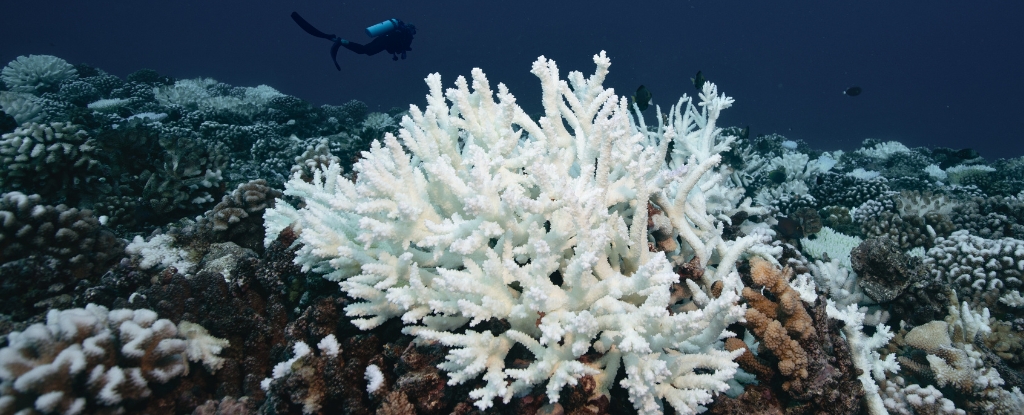A record-breaking coral bleaching event has affected 84% of the world’s coral reefs, making it the most widespread and intense crisis of its kind, scientists announced in April 2025. Triggered by persistently high ocean temperatures since early 2023, this fourth global bleaching event has impacted reefs in the Pacific, Atlantic, and Indian Oceans. Coral bleaching occurs when corals expel the algae they rely on for color and nutrition, leaving them vulnerable to disease and death.
This crisis is directly linked to climate change and the ocean’s absorption of excess heat caused by greenhouse gas emissions. The US National Oceanic and Atmospheric Administration (NOAA) warned that some reefs are experiencing such extreme heat stress that near-total coral mortality is possible. Even heat-tolerant coral species are now succumbing.
Since the 1950s, live coral cover has halved, and scientists project that at 1.5 °C of global warming, 70–90% of coral reefs could disappear. Coral reefs are vital ecosystems, supporting marine biodiversity and providing food, storm protection, and livelihoods for millions of people. The severity of this bleaching has forced NOAA to expand its coral bleaching alert system, reflecting the growing danger posed by ongoing fossil fuel emissions and climate inaction. The need to protect coral reefs around the world has become critical.

It is very depressing to hear about the death of coral reefs and what it means for marine ecosystems. All projections that have been made painted most coral reefs being bleached and dead within the next few decades. Wonders like the GBR and the life it once supported will unfortunately be something the next generation will only know through textbooks and videos pointing to it as symbol of climate change and the damage it causes
ReplyDeleteHeartbreaking but ultimately unsurprising, the fact that even the hardiest species are bleaching shows how far we've pushed the planet. It's a chilling reminder that climate change isn't a distant threat; it's here, and it's eroding vital ecosystems that millions depend on.
ReplyDeleteHey Kazi, this is truly heartbreaking, I knew coral bleaching was a problem, but I never realized how bad and widespread it was. The fact that even the heat-tolerant corals are dying shows us how serious of a problem this really is. The ocean depends on coral reefs so heavily and they are dying off so fast. You did a great job explaining everything so clearly!
ReplyDelete